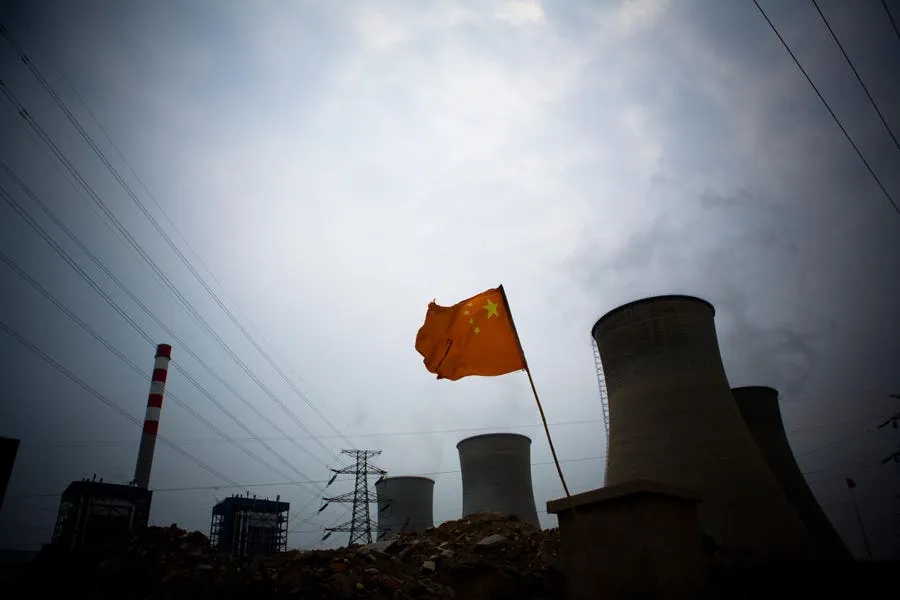Forbes contributors publish independent expert analyses and insights.
Sen. Ted Cruz deserves credit for saying what too many in Washington are unwilling to admit. American energy security is under coordinated attack, and it is not just coming from progressive environmental activists. It's being encouraged and in some cases funded by our top geopolitical rival.
On Wednesday, Sen. Cruz's Judiciary oversight subcommittee will hold a hearing to examine how China and America's climate litigation movement are working in parallel to undermine U.S. energy dominance. These efforts are being carried out under the banner of environmental protection and the clean energy transition, but the real goal is to weaken America's energy sector and give the advantage to China in global energy and manufacturing markets.
Climate cases brought by plaintiff firms like Sher Edling are supported by a network of well-funded foundations and nonprofits that are unwittingly advancing the strategic interests of America's adversaries by weakening domestic energy production and increasing our dependence on foreign-controlled supply chains -- particularly those dominated by China.
There is growing recognition that this is a national security problem. The U.S.-China Economic and Security Review Commission has warned that the Chinese Communist Party is actively working to "directly and malignly influence state and local leaders to promote China's global agenda."
A recent report by national security nonprofit State Armor outlines how China has co-opted elements of the U.S. climate lobby to drive a transition away from fossil fuels. The result is greater U.S. reliance on Chinese-controlled technologies, minerals, and supply chains. China dominates the global markets for lithium, cobalt, solar panels, and battery components. It stands to gain enormously from U.S. policies that force a premature shift away from traditional energy sources.
The report spotlights Energy Foundation China (EFC) which claims to be a nonprofit headquartered in San Francisco. In reality, its staff are mostly based in Beijing, and its operations align closely with the Chinese Communist Party's interests. EFC has spent millions supporting anti-fossil fuel groups in the United States, including the Rocky Mountain Institute and the Natural Resources Defense Council. NRDC was the subject of a 2018 congressional inquiry over whether it should register as a foreign agent due to its ties to China.
House Energy and Commerce Committee leaders last year warned that "China has already attempted to influence United States policy and opinion through covert influence and by exploiting perceived societal divisions." Their letter raised concerns about China-affiliated organizations influencing U.S. energy policy.
A number of foundations have played a role in financing climate litigation efforts nationwide. A decade of litigation that most likely would not have happened without their financial backing. Major donors to this network include some of the largest philanthropic institutions in the country, including the Children's Investment Fund, MacArthur, Rockefeller, and Hewlett foundations. Yet few of these donors have accounted for the risk of foreign manipulation embedded in the organizations they fund.
The influence campaign also extends into U.S. academic institutions. The National Natural Science Foundation of China, a government-run research entity, has published articles in American journals criticizing fossil fuels and accusing U.S. companies of deceptive practices. One of EFC's top communications directors previously held a position at that same Chinese foundation.
At the same time, the revolving door between activist nonprofits and government agencies is raising serious ethical and legal questions. Ann Carlson, a senior official in the Biden administration, previously sat on the board of the Environmental Law Institute while also consulting for Sher Edling. This institute has hosted multiple educational events with Chinese organizations on "climate litigation capacity building" aimed at influencing judges and shaping the legal landscape in both countries.
Sen. Cruz is right to shine a spotlight on these connections. There is no shortage of outside forces fueling this wave of litigation, and his subcommittee is well positioned to expose them. The American people deserve transparency about who is bankrolling the litigation assault on domestic energy and to what end. This is not simply the work of environmentalists who believe they are saving the planet. It includes adversarial foreign actors with a vested interest in weakening U.S. energy leadership and shifting global influence away from the United States.
President Trump's energy dominance agenda is helping restore American strength by unleashing domestic production and lowering energy prices. But the progress made is at risk. Foreign interference, opaque litigation funding, and activist-driven policy by lawsuit are undermining U.S. energy security. Prior administrations allowed this framework to take hold by ceding policymaking authority to the courts.
China is more than happy to watch us tie our economy in regulatory knots while it builds new coal-fired power plants, locks in oil and gas contracts with OPEC+ members, and consolidates control over clean energy technologies. If we let this trend continue, we are handing Beijing exactly what it wants.
We need stronger congressional oversight, new transparency requirements for nonprofits that receive foreign-linked funding, and a renewed national focus on producing energy here at home. That starts by recognizing that this is not just a political disagreement; it's a strategic threat to our country's future.
